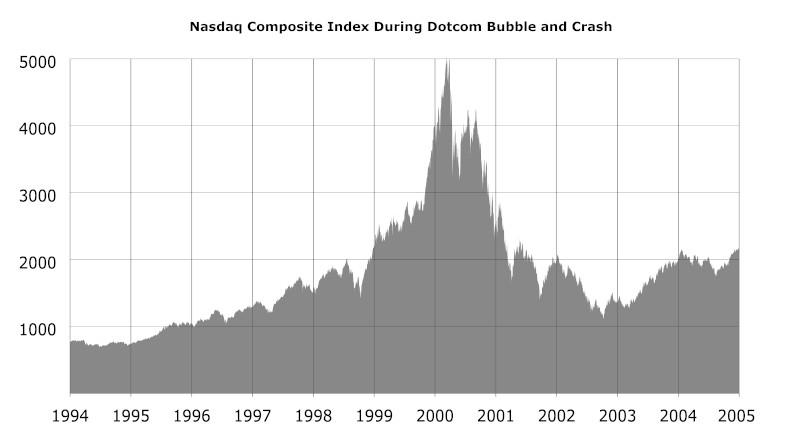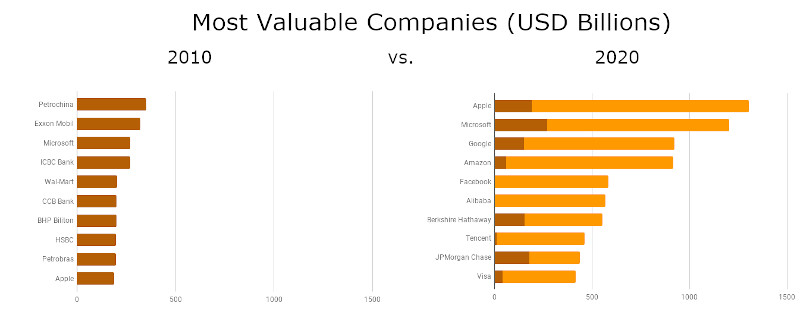Evolution of web technologies
Let’s have a closer look at the evolution of web in this piece:
Web technologies - as we know it - have been around for a couple of decades. Having gone through significant changes, it would be healthy to have a casual look at their evolution in general.
Three phases of Web
Generalizations usually make a concept easier to understand . Even though the evolution of the web has been a continuous process, there are three major buckets that we can put these developments in.
The first phase
The first web was invented by universities and sponsored by the US military. The main motive was to avoid the pitfalls of centralization.
“What do we do if our main central database is under enemy attack?” was the first vital issue raised by security experts at that time.
Answer: Let’s create a duplicate of that site and put it in a far location. “What if both are attacked?” Then let’s put multiple sites in different locations. That’s great, but how are we going to ensure that data stored in multiple locations are synchronized - meaning ‘we have the exact same information in each site’. Let’s connect them via cable. Multiple locations connected to each other. Just like a spider web.
Later on, the inventors realized that, they can use this channel not only to synchronize data but also to communicate with each other.
In line with genuine ‘open research’ spirit, all the technology created by universities in that era was licensed for free. Examples include TCP/IP, HTTP (later on HTTPS) and GPS. After all we all stand on the shoulders of giants.
 |
|---|
| Image by Paul Bates from Pixabay |
So the first phase of the web was free and open to everyone. There is one drawback though: It was not quite user-friendly. Why? Well, researchers were dealing with infrastructure and larger problems. Quite honestly they have neither time, nor resources/motivation to make these technologies user friendly. When Tim Berners Lee introduced the www standard in 1989, we have passed into a new era…
The second phase
Coming into 1990s, capital has discovered the true potential in the web: Using the internet it is possible to reach not millions but billions of people.
Result: A frantic Dotcom craze… Ideas floating, visionary business plans all around.. Venture capital firms distributing cash left and right.. But…
When valuations were skyrocketed but business plans could not hold their promise, we had a Dotcom bubble and then crash… Was it all gloom and doom?
 |
|---|
| By Lalala666 at Wikipedia |
Of course not. Some of the ideas actually managed to have huge success. Such as? Google, Facebook and Amazon.. In fact, they become so successful that their global dominance has become unavoidable. Just look at the most valuable companies and see how the list has changed in ten years from 2010 to 2020:
 |
|---|
| Source: 2010 by FT, 2020 by Google Finance |
How did these giants become so dominant? Well, this was an area of information and data. It was all about collecting customer data, analyze it and serve it to advertisers. In essence, the dollars that were originally allocated to TV and newspapers have been poured into internet ads.
This new web was global. It was user friendly, making our lives much more comfortable. Also much more connected with our loved ones or people that are of interest to us. However there was a major shift from the original premise. And it all started one night. Let me explain:
If you used Facebook early days, then you might remember: Posts from our connections were listed on our Facebook page in a timely fashion, meaning you can see all the posts in order - from older to newer (or vice versa).. Then one day, without in advance notice, Facebook decided to change this order. Minor change right? Nothing to worry about. Well actually, no. It was a huge change. What did Facebook do to have such an impact on our lives?
Facebook algorithms
Facebook started using an algorithm to decide which posts to publish. Their logic: Most of the posts from your friends are not deemed worthy of your time so they are showing you all the posts that more relevant for you. Who decides what is ‘relevant’? Facebook, of course!
This was actually beginning of the end of second phase. Started as something that is user friendly, connecting millions, within the touch of cell phones, has become a gigantic machine that tracks every movement of users and more worryingly trying to manipulate their online behavior. Such as? Listening in your phone calls with your friends and showing you relevant ads. That sounds quite handy. How about, your child watching a video about race cars and suddenly get exposed to miniature car toys. Not so OK. Showing you a post about the elections which let you believe that there is no point to go to the polls to vote? No, no, no…
 |
|---|
| ‘Lives of Others’ - a fantastic movie about East German Secret Service tapping into people’s phones. Now tech giants listen to our phones with our consent Source: IMDB |
The next phase of web
The invasion of privacy and manipulation of masses were actually predicted long before such themes were publicly criticized. A new type of web, where users have more power, meaning owning their footprints on the web and keep them private, has been discussed among certain circles since the early 2000ss.. The result is the third phase of web where we will discuss on our next post…
This piece is first published in BlockchainIST Center on April 15th, 2021.
None of the views expressed in this article should be considered as investment advice
